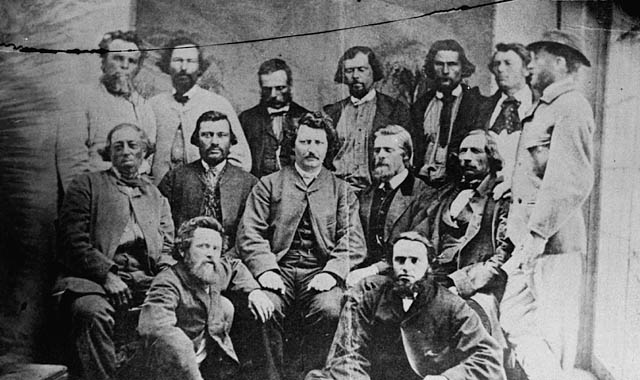I don't agree with the notion that Christianity has somehow "grown up", because that seems to imply that a religioun should over time become more liberal. That makes no sense if religion is based on some fundamental truths that are never changing.
The mystical idea behind different religions is sometimes different, but eventually, look at religion as just another (complex and mystical) form of ideology.
You have the original founder of the religion, that sets it rolling, and then you have different stages of expansion.
You also have a religious authority that slowly changes the religion by patching it with new commands, new interpretations and of course new stories involving the founder.
This allows the religion to slowly morph and adapt to
a) the religious authority's interests
b) the interests of local ruling elite
c) the current circumstances, and timely events, ethics, laws and so on.
Had religion really stayed permanent, it would have been left after few generations, because it would become irrelevant.
I agree with the rest of the analysis until this:
And on a side note, Judaism is far more similar to Islam than Christianity, which is why Jews and Muslims got along so much better with each other than either group got along with Christians until the last 150 years. Judaism of course was forced to develop as a religion seperated from power itself. It will be interesting to see the rise of Judaism as a political force now that it has again become a political alternative.
I do not think Judaism is similar to Islam in its totality, in its strive for expansion, or in its view on power-structures.
The last religion inspired expansion battle is probably the expansion of Jews into Canaan. after that, IIRC, the conquests made by David and Solomon are no longer seen as religious missions but rather personal endeavors of the kings.
Judaism never tried to expand to other people, and always saw itself as a local phenomena. While it shunned other religions developing among "jews" in its territory, it never seeked to "bring the light" to other people by means of force and conversion.
This did not happen under any of Judaism's prominent figures and it has never happened even during times where the Jewish state flourished.
Jewish law is not seen as absolute and is not meant for all humanity. Jews saw themselves as a sect that tries to serve example for the world of god's will, but it is never expected or even wanted that other nations convert or join.
Another point is that Judaism was for the most part developed without temporal power, or in conflict with it. From the early books, both temporal power and (the separate) religious establishments are often corrupt and self interested is core to judaism since its first leaders.
There is always a difference between
- what god actually wants
- what kings do
- what the priests do.
Kings, and levis and prophets come under criticism from total outsiders- the prophets. people who come from the edge of society and are oddball rejected street soothsayers.
The stories teach not to blindly trust establishments because neither official rulers nor official priests carry the real god's word, and they are easily corrupted.
A perfect religious rule is never described. Even figures such as Abraham and Moses had human faults and were criticised.
In any case, the major historical shaping of Judaism is done in the babylonian diaspora, following the fall of the 1st temple, where judaism is far from any sort of temporal power.
After the building of the 2nd temple the religion is brought to writing with the intention of educating the populace and increasing a single persons power and relationship with god.
The fall of the 2nd temple increases the personalization tendency because there is no central place to pray and no organized central authority.
This leads Judaism to become a very spiritual and personal religion.
PS: this really should be sliced into a different thread.








Comment